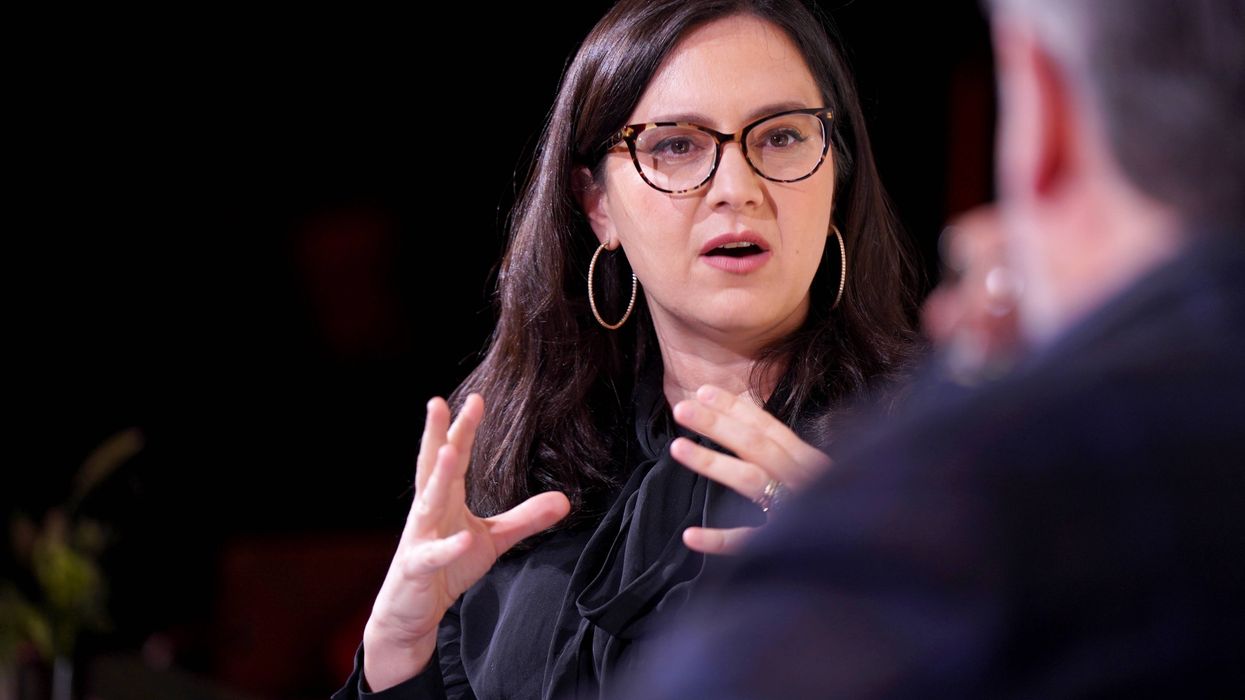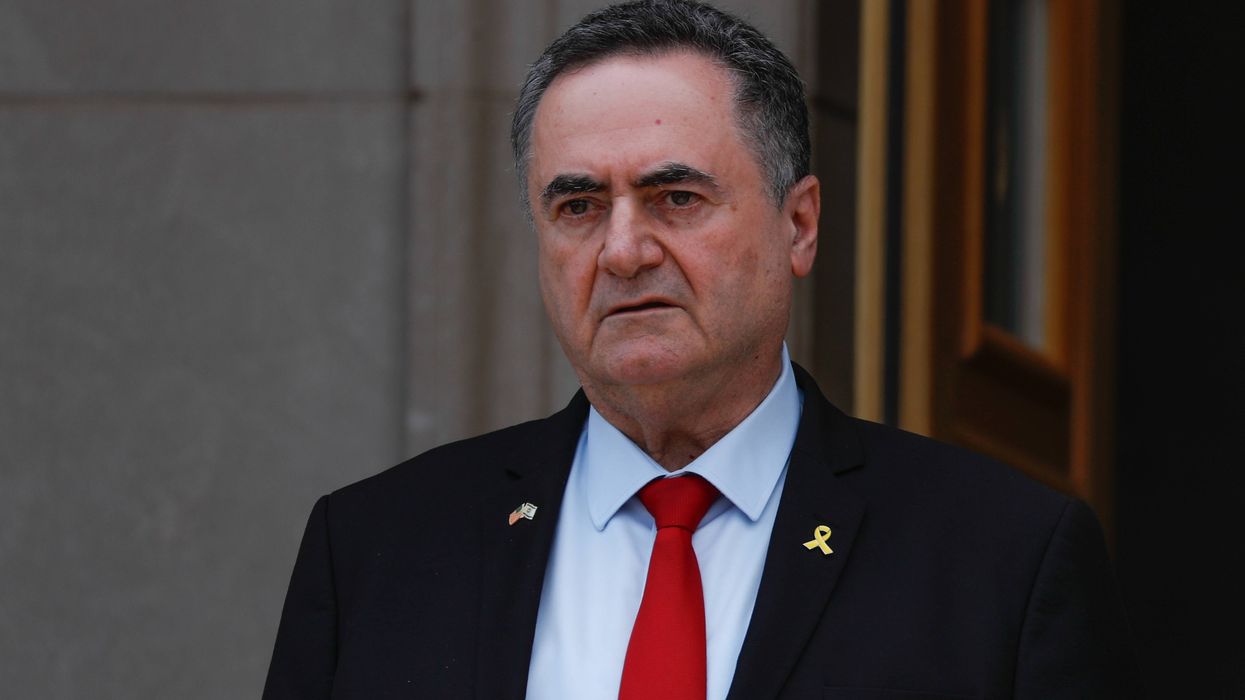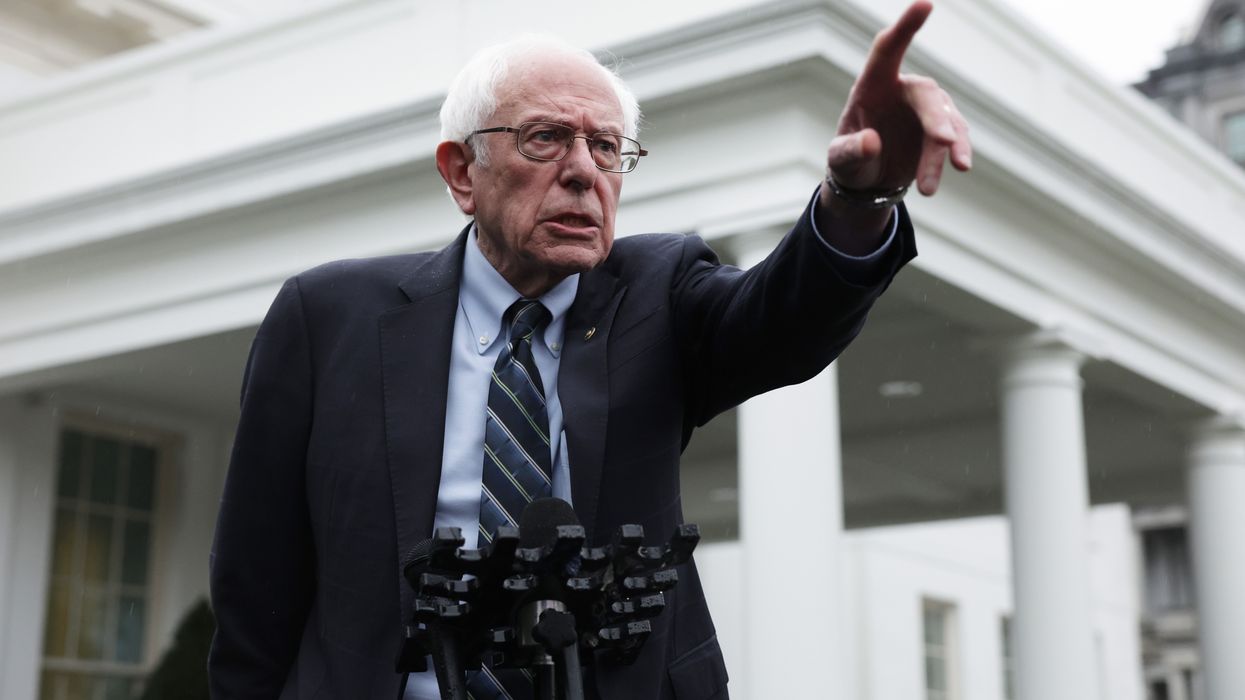February, 15 2013, 10:45am EDT
For Immediate Release
Contact:
Sam Husseini, (202) 347-0020; or David Zupan, (541) 484-9167
Ten Years After Feb. 15 Global Protests, A New Call
WASHINGTON
We Are Many Trailer Feb 2013 from We Are Many on Vimeo.
Ten years ago, on Feb. 15, 2003, sometimes called "the day the world said 'no' to war," millions marched around the world against the then-impending invasion of Iraq in what is widely regarded as the largest protest in history. Two days later The New York Times referred to "two superpowers on the planet: the United States and world public opinion."
A "Feb. 15" statement, below, is being released tomorrow -- signatories include Noam Chomsky, Daniel Ellsberg and Nobel Peace Prize winner Mairead Maguire. It reads: "We don't just say 'no' to war -- we say 'yes' to peace, we say yes to building economic and social systems that are not dominated by central banks and huge financial institutions. We don't just say 'no' to war -- we demand an end to massive resources being squandered on the military while billions are made poorer and poorer as a few reap huge wealth totally disproportionate to any labor or ingenuity of their own." It raises the possibility of more such protests on a global level in coming months.
AMIR AMIRANI, [email]
Amirani is producer-director of the forthcoming documentary "We Are Many" about the Feb. 15, 2003 global protests. A trailer of the film will be released on Friday.
The following are among the signers of the new Feb. 15 statement:
DAVID MARTY, [email]
Marty is with the International Organization for a Participatory Society in Spain and is co-author of the new book Occupy Strategy.
BILL FLETCHER, [email]
Fletcher is co-founder of United for Peace & Justice as well as the Center for Labor Renewal. He will be speaking at an event commemorating the Feb. 15, 2003 protests on Friday.
SAM HUSSEINI, [email]
Husseini is communications director for the Institute for Public Accuracy.
The Feb. 15 Call for Global Protests for Democracy, Solidarity and Justice:
Ten years ago, millions of people around the world said "no" to war on February 15, 2003. Now, we say "yes" to peace; "yes" to demilitarizing, to having decent lives, including economic lives, determined by democratic principles.
The invasion of Iraq still began after the 2003 protests, but the violence wreaked by Bush was more limited than the U.S. government inflicted on Vietnam a generation earlier. Our vigilance was part of the reason for that. Had we acted sooner, we might have been able to avert the disastrous invasion. The lesson is we need more global protest and solidarity, not less. Indeed, had we continued vigorously protesting, we might not have seen the years since 2003 show a lack of accountability for the war makers, even as conscientious whilstleblowers are prosecuted.
This isn't a reunion party. The same impulses that drove us to the streets in 2003 are still with us; the same war mindset prevails in world affairs. Politicians who backed the Iraq war dominate the U.S., UK and other foreign policy establishments. The dominant media's demonization of Iran now is similar to what it did to Iraq. The U.S. escalated its war in Afghanistan and launched a series of smaller "dirty wars" in Yemen, Pakistan and elsewhere with illegal drone killings and now, with AFRICOM and other mechanisms, threatens perpetual war in Africa as well as the Mideast. The Obama administration's "pivot East" threatens a Cold War or worse with China.
The Arab uprisings displaced some dictators -- most successfully when done peacefully by the people in spite of violence by the regimes, as in Tunisia and Egypt. But the oppressive regimes of the Gulf have not only escaped real scrutiny, they are actually molding much of the rest of the region in conjunction with the U.S. and other outside powers -- even as the U.S. proclaims its support for "democracy." Much of the wealth from the Gulf states flows to Western banks, as well as the dictators and their cliques, rather than to benefit the people of that region. The Palestinian people continue to suffer not only neo-liberal dominance, as much of the world does, but also the settler colonialism of Israeli forces.
These issues are not unique to the Mideast -- the U.S. has over 1000 bases around the world, some with explicitly colonial frameworks, as with "territories" like Puerto Rico. The U.S. and Russia have tens of thousands of nuclear warheads threatening life on earth. A fundamental transformation is needed. The United Nations has failed in its paramount duty to shield future generations from the scourge of war.
We don't just say "no" to war -- we say "yes" to peace, we say yes to building economic and social systems that are not dominated by central banks and huge financial institutions. We don't just say "no" to war -- we demand an end to massive resources being squandered on the military while billions are made poorer and poorer as a few reap huge wealth totally disproportionate to any labor or ingenuity of their own.
We don't just say "no" to war -- we reject an economic system that in the name of "economic competitiveness" pits workers against each other in regions and nations so they accept work for less and less pay in worse and worse conditions. From the seeds of antiwar that were planted ten years ago, we want a flowering of global democracy. So we can honestly say "We the People" without the hierarchies based on ethnicity, gender, class or nationality.
The rise of the "occupy" movement, the Indignados, Idle No More movement and others has been critical, but we must set up more durable structures, to go beyond merely occupying to liberating and to being connected across national borders. The quest for profit and perpetual financial growth has enriched a tiny minority while causing hardships to the vast majority. The quest for perpetual financial growth and profit has ravaged the earth so that we today face unprecedented threats to the possibility of sustaining a livable habitat for future generations. The quest for profit and perpetual financial growth has corrupted virtually every system in the society, from government to housing to transportation to education to the legal system. The dominance of finance and the military must end; the targeting of the social safety net must end. We, the people, must not pay for a crisis we did not cause, and for wars that are fought in the name of our security -- but which ensure perpetual global insecurity and hardship.
Part of the needed building of durable structures that liberate is to globalize and coordinate protests. These could be done regularly, even monthly beginning March 15 and going onward.
Solidarity demands much greater communication between the people of the world, not elites planning for their continued dominance. The response to the decline of U.S. power is not a smarter use of power, or a balance of power with other elites with their own hierarchies. Instead, we issue "This call for a worldwide fellowship that lifts neighborly concern beyond one's tribe, race, class, and nation" to establish meaningful solidarity with people worldwide.
See the full statement, with list of signatories.
A nationwide consortium, the Institute for Public Accuracy (IPA) represents an unprecedented effort to bring other voices to the mass-media table often dominated by a few major think tanks. IPA works to broaden public discourse in mainstream media, while building communication with alternative media outlets and grassroots activists.
LATEST NEWS
YouTube, TikTok Deleted ‘60 Minutes’ CECOT Clips Amid Paramount Takedown Push
The segment on the notorious torture prison—where the Trump administration has been unlawfully deporting Venezuelans—went viral on social media after being inadvertently aired in Canada.
Dec 23, 2025
Websites including YouTube and TikTok this week removed posts of a CBS News "60 Minutes" segment on a notorious prison in El Salvador, where Trump the administration has been illegally deporting Venezuelan immigrants, after being notified that publishing the clip violated parent company's copyright.
The segment on the Terrorism Confinement Center (CECOT)—which was intended to air on Sunday's episode of "60 Minutes"—was pulled by right-wing CBS News editor-in-chief Bari Weiss, who claimed that the story "was not ready" for broadcast, despite thorough editing and clearance by key company officials.
“Our story was screened five times and cleared by both CBS attorneys and Standards and Practices," said "60 Minutes" correspondent Sharyn Alfonsi, who reported the segment. “It is factually correct. In my view, pulling it now, after every rigorous internal check has been met, is not an editorial decision, it is a political one.”
The segment—which can still be viewed on sites including X—was shared by social media users after a Canadian network received and broadcast an original version of the "60 Minutes" episode containing the CECOT piece prior to CBS pulling the story. The social media posts containing the segment were reportedly removed after CBS parent company Paramount Skydance filed copyright claims.
A CBS News representative said that “Paramount’s content protection team is in the process of routine take down orders for the unaired and unauthorized segment.”
Weiss—who also founded and still edits the Paramount Skydance-owned Free Press—has faced criticism for other moves, including presiding over the removal of parts of a previous "60 Minutes" interview with President Donald Trump regarding potential corruption stemming from his family’s massive cryptocurrency profits.
On Tuesday, Axios reported that Weiss is planning a broad overhaul of standards and procedures at the network, where she was hired by Paramount Skydance CEO and Trump supporter David Ellison in October, despite a lack of broadcasting experience.
Keep ReadingShow Less
Israeli Defense Minister Tries to Walk Back Vow to 'Never Leave Gaza,' Build Settlements
The remarks drew critical responses, including from other Israelis and the White House.
Dec 23, 2025
Israeli Defense Minister Israel Katz "said the silent part out loud" on Tuesday, then promptly tried to walk back his comments that his country would not only never leave the Gaza Strip, but also reestablish settlements in the decimated exclave.
Israel evacuated Jewish settlements in Gaza two decades ago, but some officials have pushed for ethnically cleansing the strip of Palestinians and recolonizing it, particularly since the Hamas-led October 7, 2023 attack and the devastating Israeli assault that followed.
The Times of Israel on Tuesday translated Katz's remarks—made during an event about expanding Beit El, a Jewish settlement in the illegally occupied West Bank—from Hebrew to English:
"With God's help, when the time comes, also in northern Gaza, we will establish Nahal pioneer groups in place of the settlements that were evacuated," he said. "We'll do it in the right way, at the appropriate time."
Katz was referring to the Nahal military unit that, in part, lets youths combine pioneering activities with military service. In the past, many of the outposts established by the unit went on to evolve into full-fledged settlements.
"We are deep inside Gaza, and we will never leave Gaza—there will be no such thing," Katz said. "We are here to defend and to prevent what happened from happening again."
The so-called peace plan for Gaza that US President Donald Trump and Israeli Prime Minister Benjamin Netanyahu announced at the White House in late September notably states that "Israel will not occupy or annex Gaza," and "the Israel Defense Forces (IDF) will withdraw based on standards, milestones, and timeframes linked to demilitarization."
Gadi Eisenkot, a former IDF chief of staff who launched a new political party a few months ago, responded to Katz on social media, writing in Hebrew, "While the government votes with one hand in favor of the Trump plan, it sells myths with the other hand about isolated settlement nuclei in the strip."
"Instead of strengthening security and bringing about an enlistment law that will bolster the IDF, the government, driven by narrow political considerations, continues to scatter irresponsible and empty declarations that only harm Israel's standing in the world," he added.
The White House was also critical of Katz's comments, with an unnamed official saying that "the more Israel provokes, the less the Arab countries want to work with them."
"The United States remains fully committed to President Trump's 20-point peace plan, which was agreed to by all parties and endorsed by the international community," the official continued. "The plan envisions a phased approach to security, governance, and reconstruction in Gaza. We expect all parties to adhere to the commitments they made under the 20-point plan."
Later Tuesday, Katz's office said that "the minister of defense's remarks regarding the integration of Nahal units in the northern Gaza Strip were made solely in a security context. The government has no intention of establishing settlements in the Gaza Strip. The minister of defense emphasized the central principle of border defense in every arena: The IDF is the first and last line of defense for Israel's citizens, and the state of Israel relies for its protection solely on it and on the security forces."
Katz became defense minister in November 2024, just weeks before the International Criminal Court issued arrest warrants for his fired predecessor, Yoav Gallat, and Netanyahu over Israel's assault on and blockade of Gaza. When Katz took on the new role after serving as foreign minister, Palestine defenders accused the prime minister of swapping one "genocidal lunatic" for another.
Israel faces an ongoing genocide case at the International Court of Justice for its mass slaughter of Palestinians in Gaza. As of Tuesday, local officials put the death toll since October 2023 at 70,942, with another 171,195 Palestinians wounded, though global experts warn the true tallies are likely far higher.
At least 406 of those confirmed deaths have occurred since Israel and Hamas agreed to a ceasefire that took effect October 10. In a Monday letter demanding action from the White House, dozens of Democratic US lawmakers noted Israel's "continued bombardment against civilians, destruction of property, and insufficient delivery of humanitarian aid."
Keep ReadingShow Less
Sanders Slams Private Equity Scrooges Ending Paid Holidays for Walgreens Workers
"While the rich get richer, workers are struggling, and your decision to cut workers' paid vacation is making the problem worse."
Dec 23, 2025
Independent US Sen. Bernie Sanders on Tuesday urged the private equity firm that recently acquired Walgreens to reverse its decision to strip hourly workers at the second-largest US pharmacy chain of paid days off on Christmas and other major holidays.
After Sycamore Partners finalized its $10 billion purchase of Walgreens in late August, the pharmacy chain—now headed by CEO Mike Motz—eliminated paid holidays for New Year's Day, Memorial Day, Independence Day, Labor Day, Thanksgiving, and Christmas. Workers were notified of the move, which was first reported by Bloomberg, in October.
The move is typical of what private equity firms—sometimes called vulture capitalists—often do in order to maximize profits. In addition to slashing paid time off and benefits, they often reduce or freeze pay, fire workers, close locations, introduce aggressive sales targets, and reduce job security by replacing full-time positions with hourly or independently contracted workers. Walgreens announced last year that it planned on closing around 1,200 of its roughly 8,000 US stores, citing their struggling performance.
"This Thanksgiving, Walgreens' hourly workers faced the impossible choice between losing pay and spending the holiday with their loved ones," Sanders (Vt.)—who is the ranking member of the Senate Health, Education, Labor, and Pensions (HELP) Committee—wrote Tuesday in a letter to Sycamore Partners founder and managing director Stefan Kaluzny.
"Walgreens employs 220,000 employees, the vast majority of whom are hourly workers... Sycamore Partners' decision to cut paid holidays for these hourly workers is unfortunately not surprising," the senator continued. "The firm follows the private equity playbook of buying businesses and aggressively extracting profit while using and abusing workers."
"For example, just one year after Sycamore Partners purchased Staples, the firm extracted $1 billion from the company as it closed 100 stores and laid off 7,000 workers," Sanders noted. "That same year, Sycamore Partners drove Nine West into bankruptcy and was accused of siphoning off over $1 billion in funds."
"Meanwhile, from 2016-22, companies owned by Sycamore Partners racked up over $3 million in labor violations, including wage-and-hour and workplace safety and health violations," he added.
During the holiday season, we all want to spend time with our loved ones. And yet, just two months after buying Walgreens for $10 billion, the private equity firm Sycamore Partners stripped hourly workers of paid vacation, including Christmas and New Year’s Day. Shameful.
[image or embed]
— Senator Bernie Sanders (@sanders.senate.gov) December 23, 2025 at 9:41 AM
Sanders contrasted a reality in which "60% of Americans are living paycheck to paycheck" with the fact that "more private equity managers make over $100 million annually than investment bankers, top financial executives, and professional athletes combined."
"While the rich get richer, workers are struggling, and your decision to cut workers' paid vacation leave is making the problem worse," he stressed. "Some Walgreens workers make as little as $15 an hour. Cutting their paid leave will make it even more difficult for these workers to pay for housing, childcare, healthcare, and groceries."
"In short," Sanders concluded, "Sycamore Partners is forcing workers to sacrifice their basic needs for private equity profit."
Keep ReadingShow Less
Most Popular


